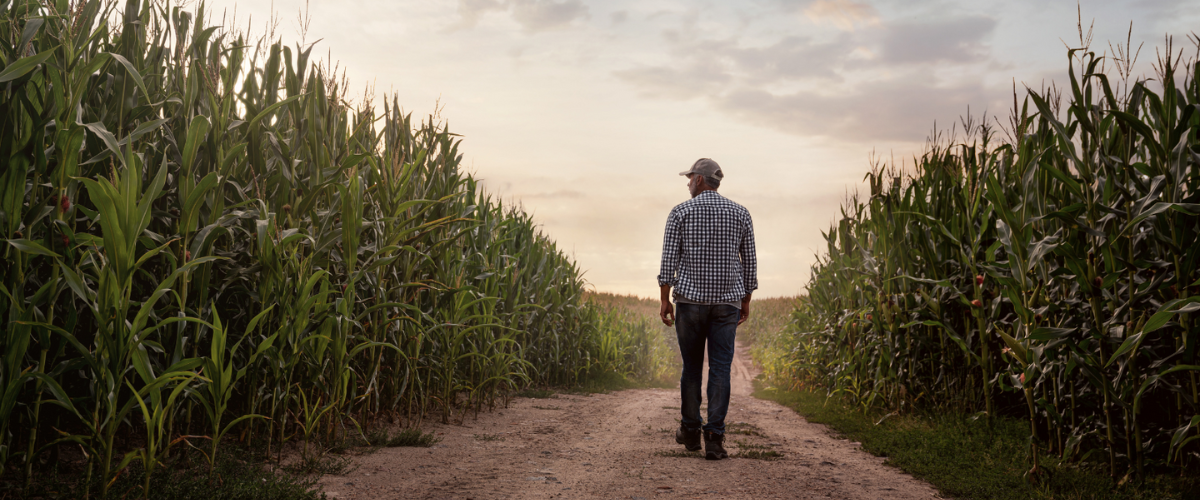
The economy has created an interesting situation for farmers. After several years of above-average farm income for many agricultural sectors, the outlook for future years may be a little lean. Crop input prices have continued to rise along with other supplies, equipment costs, labor and fuel. But, there are still opportunities to make capital investments in land.
The problem with buying or selling agricultural land is that the timing is never perfect or predictable. The past few years of profitability have placed some farmers in the position to buy ag real estate and expand their operation. However, other buyers are also in this position, which has created competition in the market and caused land prices to continually increase. This competition and demand for ag land resulted in “good quality land” prices in western Iowa increasing nearly 20% in 2022. This trend is occurring in many other farm communities as well.
Higher real estate prices, rising property taxes and interest rates, and lower anticipated future commodity prices that could send prices back down are all factors that have farmers wondering if renting land is the better option at this time.
In this blog post, we will learn more about why agricultural real estate prices are rising and what to consider when you’re deciding whether to rent or buy farmland.
There are three primary reasons for the rising cost of farmland in Iowa.
1. Crops have been particularly profitable.
Last year, Iowa was blessed with what could go down as a record crop, even during drought conditions. In addition to high yields, cash corn prices rose as much as 16% in 2022, while soybeans rose by as much as 13%. This increase in profitability for farmers has put more money in their pockets.
2. Competition for farmland has increased.
There has been continued competition to purchase farm land, which has kept prices propped up. As the aging farm family transitions, there has been an adequate supply of land sales opportunities but not an overabundance. Sales have typically been limited to estates, like-kind exchanges and other normal activities and have not been impacted by liquidations, distressed sales or other negative events that would necessitate putting additional inventory on the market.
3. Interest rates were lower until recently.
Interest rates, until the last 12 months, were historically low and allowed farmers the opportunity to lock in low rates for longer terms. This has allowed the carrying cost of the existing land to be fairly low when figuring a dollar-per-acre interest cost. This has encouraged operators to purchase land and be aggressive on the purchase price.
Farmers who are considering growing their operation have a tough choice to make between renting and buying farmland. Because of high prices combined with increasing interest rates, it is cheaper to rent land right now, but that doesn’t automatically make it the right decision for every farmer and every operation.
Pros and Cons of Renting Farmland
Pro: Many land leases are written annually. Therefore, the rent may increase or decrease with commodity prices. Landlords are typically willing to reevaluate the lease if it is no longer mutually beneficial to both parties.
Con: There is no guarantee that a farmer will be able to rent the same land again next year. The current owner may sell it, rent it to a higher bidder or decide to operate it themselves.
Pros and Cons of Buying Farmland
Pro: They own it! This is a bit of an emotional response, but there’s a lot of pride involved in farming. When a farmer buys the land, they can use it the way they want and eventually, pass it on to their family. And, if the value increases, they will make a profit if they decide to sell it in the future.
Con: Rising interest rates may send land prices back down. A price of $15,000 per acre financed at 4% equals an interest payment of $600 per acre, which is considerably higher than a rental rate. The same decline in land prices may occur if crop prices deteriorate for a prolonged period of time. If a farmer bought the land, they may lose money when they try to sell it. However, for many farmers, this may be a non-issue since they typically won’t buy land if they intend to sell in the near future.
Whatever the decision is — buying or renting — it doesn’t have to be made alone. We can look at the numbers and help you make the best financial choice for your farm operation.
Meet one of our ag bankers to learn more about how we can help.
Experience the Northwest Bank difference--the better banking experience. Contact us today and let's build a brighter financial future together!
Mon - Fri: 7:00 AM - 7:00 PM CST
Sat: 8:00 AM - 12:00 PM CST
General Support: 800-678-4105